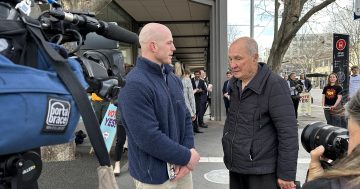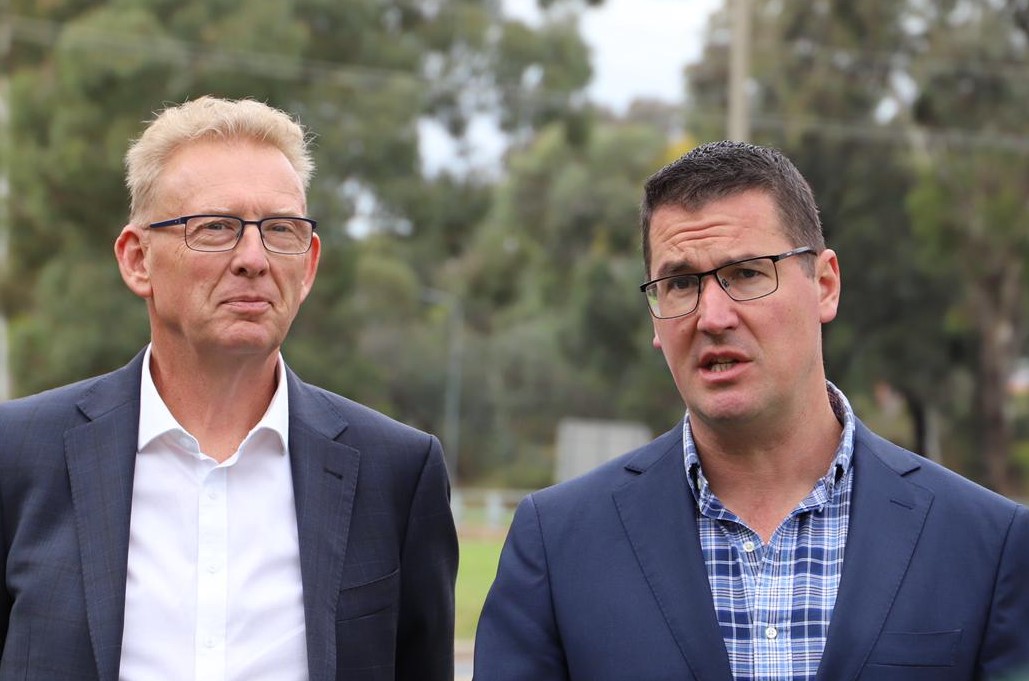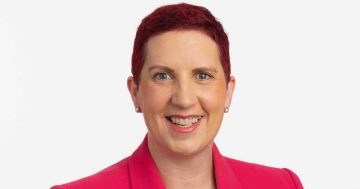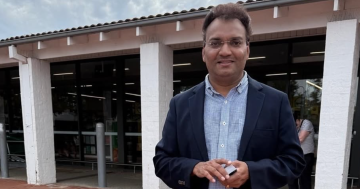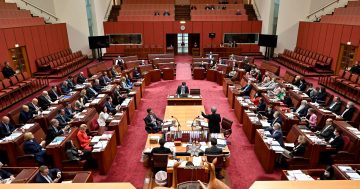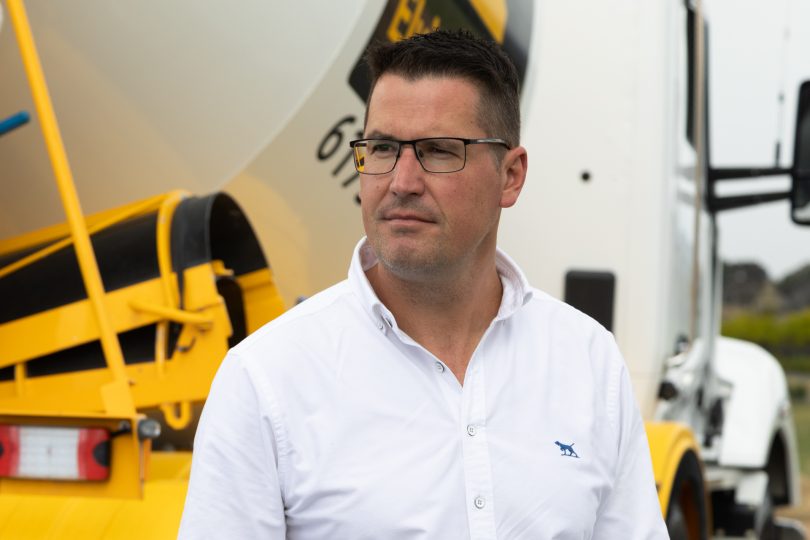
Senator Zed Seselja could be vulnerable. Photo: Michelle Kroll.
ACT Liberal Senator Zed Seselja has warned voters against considering a change of government and the risks of a potential Labor-Greens alliance in the wake of new polling that shows his hold on his Senate spot is not as secure as expected.
Two polls released yesterday (6 April) indicate Senator Seselja is facing a tough fight to retain his seat, with both the Greens and former rugby great David Pocock attracting large chunks of the vote.
Senator Seselja said the coming election, due by 21 May, was the most important in a generation and now was not the time for change.
Identifying Mr Pocock as a real threat, Senator Seselja labelled the former Wallaby skipper and climate campaigner an extreme “green independent” candidate.
“It is not the time to risk handing over power to an extreme Labor-Greens-green independent alliance, and make no mistake, Pocock sits on the Extinction Rebellion end of the extreme greens,” he said.
READ ALSO: On yer bike! Greens’ active travel proposals not for everyone
Senator Seselja said Australia was facing an increasingly complex national security environment, and the economy is still recovering from COVID-19.
“This is not the time to risk the higher taxes and weakened national security of a Labor-Greens-green independent alliance.”
Senator Seselja warned that a vote for any of the independents or the United Australia Party could result in a Greens or Pocock win.
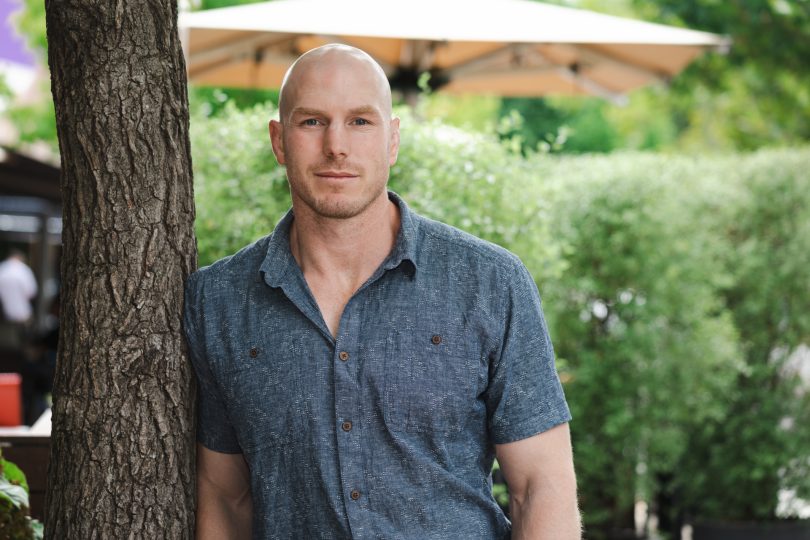
David Pocock: “I want to make politics about people again.” Photo: Michelle Kroll.
But Mr Pocock said he was a pragmatist who wanted to get results on issues that matter to Canberrans.
“I want to make politics about people again and represent a community I love,” he said.
“Clearly, there are a lot of people who want to see politics done better. Talking to Canberrans, we want more integrity in politics and politicians to get on with actually dealing with the big issues we face, rather than politicising issues and not looking beyond the next election.”
Mr Pocock said the only “risk” in voting for him was that Canberrans would get action on things that matter to them.
“As Senator Seselja rightly points out, the next three years will be crucial: crucial for integrity, smart energy transition, dealing with housing affordability and cost of living as well as finally getting more Territory rights,” he said.
The polls show Senator Seselja well short of a quota at this stage of the undeclared campaign, only mustering 24 and 25 per cent of the primary vote in both polls.
In 2019, Senator Seselja brushed off the Greens’ challenge despite the Liberal vote again dipping below quota, to 32.4 per cent, but there were plenty of preferences to get him home comfortably.
Official wisdom is that it will be almost statistically impossible to shift Senator Seselja, but the polling suggests there is even more antipathy towards the Morrison Government in the ACT than last time, with Mr Pocock taking votes away from both the Liberals and Labor Senator Katy Gallagher, who is set to be re-elected easily.
The Greens’ performance is no surprise, but Mr Pocock’s solid showing adds spice to the contest, which may come down to a preference dogfight.
According to the polls, Mr Pocock is running fourth at 13 per cent and 11 per cent of the redistributed vote close behind the Greens’ Dr Tjinara Goreng Goreng (15%, 14%) but could have momentum to overtake her.
Senator Gallagher (35%, 37%) already looks to have a quota in the bag.
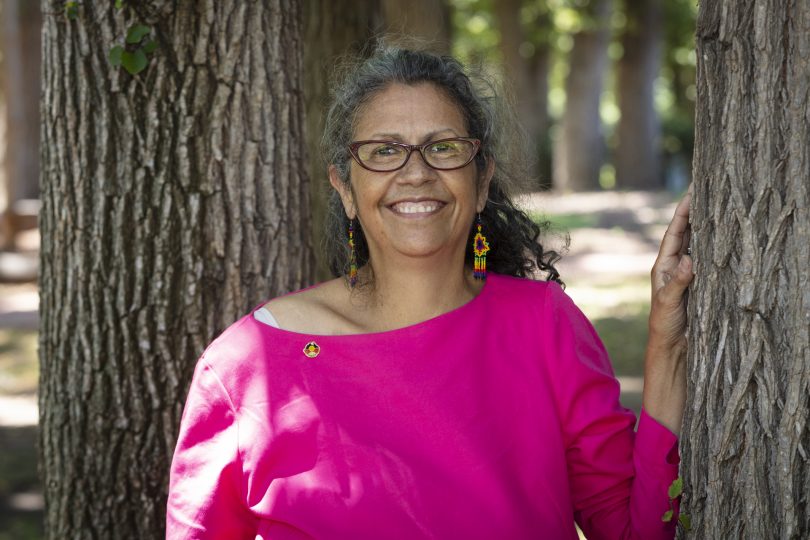
Greens senate candidate Tjanara Goreng Goreng: best chance ever to unseat Senator Seselja. Photo: Thomas Lucraft.
The other independent, lawyer Kim Rubenstein, could manage only 6 and 7 per cent in the polls, while Clive Palmer’s United Australia Party varied from 7 per cent in one poll to 2 per cent in the other.
About 11 per cent of voters were undecided.
Topping the list of voter concerns in both polls was climate change and the environment, followed by the cost of living and integrity in government alternating in second and third place, with the economy running fourth.
While the polls show Senator Seselja below quota, he still has a strong base from which to snare enough preferences to retain his seat.
But the results suggest he may be vulnerable to either the Greens or Mr Pocock, whose climate change and integrity credentials may appeal to disaffected Liberals.
The Greens have long coveted Senator Seselja’s seat and mounted vigorous campaigns in the last two elections, all to no avail.
But Dr Goreng Goreng said the polls reflected what the Greens had been hearing on the ground and from Labor and Liberal polling, that Senator Seselja was in trouble.
“Canberrans want a voice in the Senate who will represent its progressive values, take urgent action on climate change, expand Medicare and get big money out of politics,” she said.
She said the Greens were happy to see a range of independents talking about issues the Greens have advocated for decades because it increased the chances of defeating Senator Seselja.
“It raises the number of people voting for these issues, which is critical to achieving real action. More broadly, for anyone to unseat the Liberals, their primary vote has to go down, so the more people running and appealing to different voters, the better for everyone,” she said.
Dr Goreng Goreng said the ACT Greens believed that this was the party’s best chance to be elected to the Senate.
The two polls conducted in late March – an automated phone survey of 1331 voters and computer-assisted telephone interviews with 707 voters – were commissioned by the Climate 200 group, which is backing candidates who support stronger government action on climate change.













